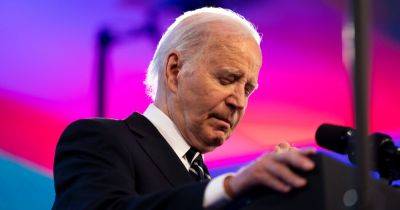ROTC cadets don't receive military death benefits. Families who lost loved ones are trying to change that.
WASHINGTON — Jessica Swan’s daughter Mackenzie was her “miracle baby.”
She was kind, smart, and always wanted to be a scientist — even correcting her mom on the pronunciations of various dinosaurs in grade school. She grew up to be an artist and an athlete, with a love of the mountains in Alaska, where she was raised. In high school, she joined the Reserve Officer Training Corps, or ROTC, enjoying it so much that she continued with her commitment into college.
But on an Air Force cadet development trip in June 2022, Mackenzie got into a Humvee with fellow cadets. The vehicle, driven over the speed limit by someone who lacked the training to operate it, spun out and flipped. “Basically, [they] said, ‘Go have fun,’” her mother said.
Mackenzie, then 20 years old, was killed. An Air Force report issued after the accident found multiple violations of protocol. Idaho authorities filed charges against the driver, but they were dismissed in November; the case is on appeal.
“You’re living every parent’s worst nightmare,” Swan recalled in a recent interview with NBC News, with a photo of her daughter in military dress hanging on a wall over her shoulder. “And then, adding to it, immense financial strain.”
Families of active-duty service members lost in the line of duty receive death benefits, including a $100,000 “gratuity” and insurance. But family members of ROTC cadets, like Swan, aren’t eligible. Nor are families of enlistees in the Delayed Entry Program, in which individuals enter as inactive reservists and commit to report for basic training on a specified future date while being encouraged to train with their recruiters in the meantime.
For Swan, burial costs, months of missed work as a teacher, and travel between Alaska,







